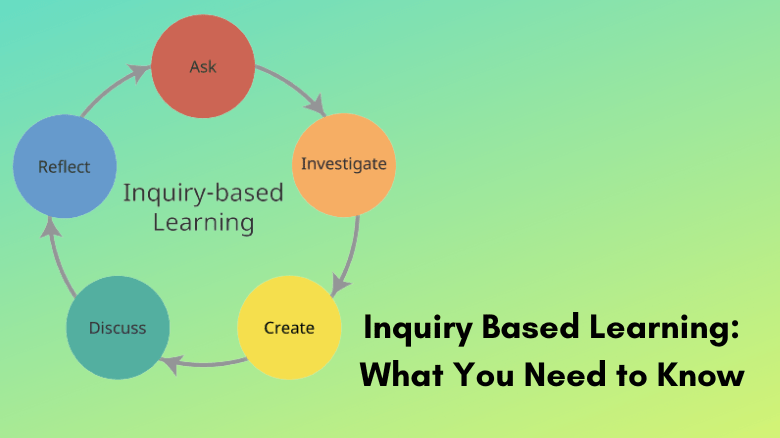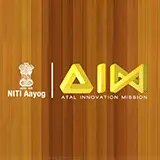Inquiry based learning is an unconventional style of learning that involves students in active involvement by raising questions and bringing real-life situations to them. Inquiry-based learning is a teaching method that encourages pupils to ask questions and study real-world problems. This style of learning has several advantages and may be used for a wide range of subjects. This blog will go over inquiry-based learning in further detail, as well as some tactics, suggestions, and benefits that you may implement in your classroom.
Inquiry based learning is a form of education that promotes learners to ask questions and study real-world challenges. Students are fully engaged with the educational process and have the opportunity to discover their innate interests in this sort of classroom environment. This sort of instruction is frequently hands-on and helps students to relate the material they're learning in the classroom to what they are studying in the real world. Critical thinking, problem-solving, and creativity have all been discovered to become stronger with inquiry-based approach.
Types of Inquiry Based Learning:
1.The Structured Inquiry Method
It is a step-by-step technique that teaches students how and when to ask questions and analyze real-world situations. In science lessons, learners are provided with a topic to research and therefore are taught how to apply the scientific methodology to discover a solution.
2.The Guided Inquiry Technique
It is an inquiry-based learning strategy taught by a teacher. The instructor guides the pupils through the exploratory process, assisting them in asking queries and discovering answers to real-world situations. This type of inquiry-based learning is widespread in elementary and middle school classrooms.
3.The Open-Ended Enquiry Method
It seems to be more free-form. Students have the flexibility to discover their preferences and express concerns regarding the subject they are researching in this sort of learning environment. This type of inquiry-based learning is widely used in humanities courses, where students are required to conduct extensive research on a topic and debate various points of view.
4.The Problem Based Inquiry Method
The Problem Based Inquiry Method learning is a problem-solving strategy for inquiry-based learning. Students are presented with a real-world problem to solve in this manner. In mathematics and engineering studies, students are typically required to use the information they've studied to solve a real-world problem, which is an example of inquiry-based learning.
Benefits of Inquiry Based Learning:
1.Increased student engagement:
It involves students taking responsibility for asking the questions they wish to investigate. This necessitates meaningful students' engagement as well as teacher assistance, all of which increases learner engagement, and research indicates various favorable consequences from better high school student engagement.
2.Better knowledge of students:
Putting students in the spotlight during a session provides teachers with an invaluable opportunity to observe. In a standard class, a math instructor could explain how and where to solve a problem, however in an inquiry-based lesson, the teacher can observe how each student interprets a problem and the processes they take to find a solution in their own unique way. Instructors can then obtain a better knowledge of their pupils' thinking and learning styles.
3.Provides essential skills for all educational fields:
Students grow their analytical and communication abilities as they investigate a topic. Students' academic abilities may be used to increase understanding in all subjects as well as in everyday life.
4.Increases interest in the material:
This strategy, which is a type of active learning, enables learners to completely engage in the learning process. Students learn more efficiently when they are allowed to explore issues, develop their own connections, and ask questions.
5.Encourages a passion of learning:
Inquiry-based learning is intended to instill a passion of learning in children. Students who are able to connect with the content in their own way not only obtain a greater knowledge, but they also build a love for discovery and learning.
6.Promotes Creativity:
This learning idea promotes creativity. When learners have the chance to investigate an issue on their own, they frequently come up with innovative solutions. This is because they are not limited by any certain style of thinking.
Inquiry Based Strategies:
Now that we've covered the benefits of inquiry-based learning as well as some instances, let's examine some inquiry-based strategies and ideas for your classroom.
1.Begin with a question:
A question is the greatest approach to begin an inquiry-based class. This will stimulate students' interest in the issue and motivate them to raise their own questions.
2.Make room for exploration:
Let pupils investigate a topic on their own once you have raised a question. This will aid their comprehension of the content.
3.Promote dialogue:
Invite pupils to share their views with one another. This will aid in their development of a deeper knowledge of the content.
4.Make available resources:
Be sure you equip them with resources to help them research the issue. This will help them in improving a better understanding.
5.Recap what you've learned:
Make a summary of what was taught at the end of the lesson. This will aid pupils' retention of the content.
Your pupils should gain from a deep grasp of inquiry-based learning and the skills required to run activities. They include not just a better knowledge of curricular principles and the development of transferable skills, but also, according to studies and proponents, a deeper appreciation for the intrinsic benefits of learning. Inquiry-based teaching technique in which students are encouraged to ask questions and investigate their solutions. This style of learning offers several advantages for both students and teachers.
Vikas The Concept School is a world-class facility committed to grooming young people for future leadership roles. In a methodical approach, we provide concepts and high-quality instruction. Vikas talks in the voice of the future at school. We've created a learning environment in which children look forward to coming every day. Visit our website to discover more about our curriculum, academics, and extracurricular activities. Please contact us right away for a prompt admissions enquiry.















